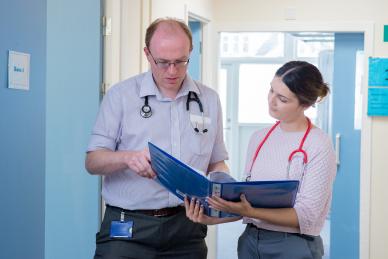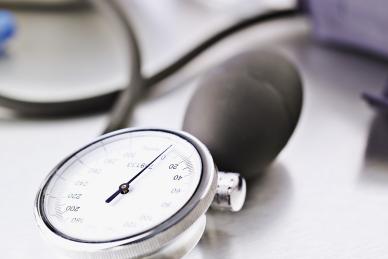Join the College
The College is here to support you at all stages throughout your career to enable you to deliver the highest standards of healthcare to patients.
Empowering medical excellence, shaping healthcare futures.
Huge variety from fetal to adult life and everything in between
Variety not just in ages and cases but physiology and how that applies to current condition and procedures which may affect this
Potentially very practical and procedure-based
Massive emphasis on team-based working and close working relationship with surgeons
Very hands-on senior-led specialty
Huge commitment to work needed in order to achieve all required and seize training opportunities
Large team-based working can be challenging at times
Dr Tony Hermuzi - ST6.
"The range of work is wide and involvement in every aspect of patient care can be extremely rewarding."

Paediatric cardiology involves structural and functional heart disease from the fetus to adulthood and requires the application of knowledge regarding changing physiology to specific conditions and interventions. It is very interventional (particularly in the context of paediatrics) in terms of both surgical and medical therapies.
I enjoy working with acutely unwell children and adults on a daily basis and in particular the procedures involved in confirming diagnosis and treatment (e.g. ranging from echo to septostomy, to perioperative imaging, to follow-up) which require focus and clear understanding. The range of work is wide and involvement in every aspect of patient care can be extremely rewarding.
Attend basic courses that will improve understanding and demonstrate commitment e.g. morphology/basic echo courses.
Audit and research projects are always running and Consultants usually need help with them.
Time spent in fellowship posts can provide very useful experience, although they are not always necessary.
| 8.00am | 8.30am | Meeting (departmental teaching/A=adult congenital/S=surgical referral). |
| 8.30am | 9.00am | Paediatric Intensive Care Unit (PICU) multi-disciplinary ward round. |
| 9.00am | 11.00am | Paediatric/adult congenital ward round. |
| 11.00am | 1.00pm | Perform/review echocardiograms for PICU/ward patients as required. |
| 1.00pm | 5.00pm | Clinic/catheter lab session. |
| 5.00pm | 6.00pm | Evening ward round/review post-catheter patients. |
| 6.00pm | Admin then home. |


Congenital and acquired heart disease from fetus to adulthood and everything in between.
The first three years focus on general paediatric cardiology, acquiring knowledge and basic skills e.g. echocardiography involving the diagnosis, investigation and management of all forms of congenital heart disease. The final two years involve special interest training in one or two areas: advanced echocardiography, intervention, adult congenital, electrophysiology and pacing, pulmonary hypertension, transplant/heart failure or imaging.
Trainees can come from a paediatric background or from adult Internal Medicine Training (IMT) with nationally based selection after 36 months experience.
Paediatric: Complete paediatric ST1-3 with satisfactory competencies and obtain the MRCPCH.
Adult: Complete IMT 1-2 with satisfactory competencies, 12 months of paediatric experience (inclusive of six months Neonatal medicine) and obtain the MRCP(UK).
Yearly annual review of competence progression (ARCP) with blueprint of assessments required at each level using a mix of workplace-based assessments (WPBA), mandatory courses e.g. morphology, basic echocardiography, advanced paediatric life support, teaching, audit and research with an overall supervisor’s report.
As there are relatively few paediatric cardiology centres in the country, most trainees (excluding London) are attached to only one centre during their training. As a result most trainees seek out of programme time (OOPT) for special interest training in addition to post-Certificate of Completion of Training (CCT) fellowships. Research is looked on favourably as there is a general lack of high-powered, randomised studies in this area. The ‘safe and sustainable’ children’s and adult’s congenital cardiac services reviews are likely to change working patterns significantly across the UK in the next few years and we await the outcomes from this.

The College is here to support you at all stages throughout your career to enable you to deliver the highest standards of healthcare to patients.